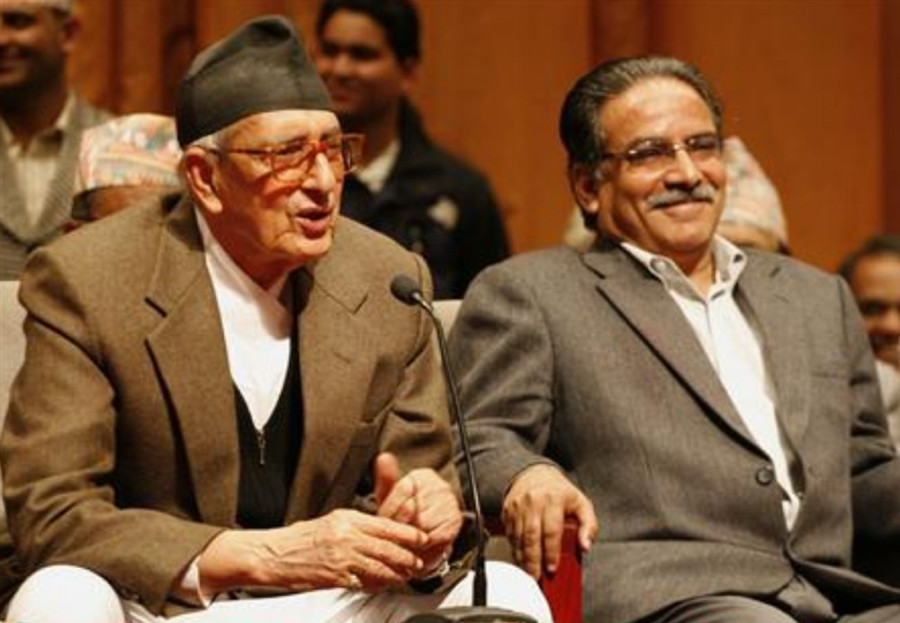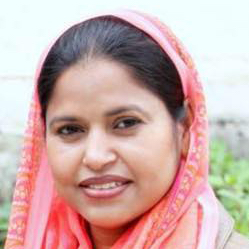Columns
Reimagining the peace pact
Some aspects of the 2006 Comprehensive Peace Agreement need to be revived and updated.
Mohna Ansari
There are different perspectives on the 2006 Comprehensive Peace Agreement even today. But one thing is clear: It was only a way to end the war, to turn the page, close the door on the past and look towards an era without violent conflict. Others see it as a historically rare moment of consensus to be kept constantly in mind, with a checklist of what is required for sustainable peace. But it is even more than that. It was a moment when our vision was clear and shared, in contrast to later moments when our collective vision once again became clouded by issues like patronage and partisanship.
For me, the peace pact was a rare moment, which needs to be nurtured and learnt from. It was a period of a few months when previously warring factions came together, and part of the result was a list of what was wrong and what led to the conflict. It was also a list of steps to be taken to avoid future conflict and ensure a new way of doing things. For sure, this was a rare moment of consensus; a rare moment when opposing political forces had to agree on what had happened and why.
It is clear that some aspects of the peace deal urgently need to be revived and updated. Here is my own personal list of peace pact wishes, aspects I would like to see revisited or implemented or redefined based on the experience of the last 13 post-Comprehensive Peace Agreement years.
If the Comprehensive Peace Agreement was happening today, I would do whatever I could to make the process more inclusive. Civil society, often the only voice of the excluded, was marginalised from the negotiations. That was a big mistake. A participatory accord would have produced a more useful document, and one that the vast majority of society would have bought into. This would have made it impossible for politicians and others to just walk away from important commitments. I particularly lament the almost total exclusion of women in this process, contrary even to UN Resolution 1325 which sets out why peace negotiations involving women tend to be better, more stable and relevant to all.
If the Comprehensive Peace Agreement was happening today I would be pushing for each of the commitments to have its own implementation mechanism. Imagine, for example, if the commitments to land reform had been accompanied by an implementation plan. We would have had much-needed reform by now, greater prosperity in rural areas based on improved harmony in those regions. And a lot of people would be feeling that they were in a more just society.
Imagine if civil society had been given a role and had been able to demand that the signatories could not just make grand declarations on justice and truth without explaining how they would happen, and what that really meant.
Most of all, I lament the way the ‘spirit’ of the Comprehensive Peace Agreement has been smothered. What I mean by ‘spirit of the Comprehensive Peace Agreement’ is an understanding that what holds together the social fabric is consensus. If our leaders had kept this in mind, they could never behave in a way that is self-interested and conflictive that they are showing over the naming of commissioners to the constitutional bodies to be set up under the constitution. Also, the apparent and shameful attempts to ‘fix’ the transitional justice process by stuffing the commissions with the party faithful, with little regard to competence, integrity or public good standing is condemnable. The way the transitional justice process is happening is contrary to both the spirit of transitional justice and the Comprehensive Peace Agreement itself—it makes public confidence in the process almost impossible.
As we take mero manchhe for granted, we need to hold up a mirror to these acts of self-serving patronage. The mirror of history will show as much incompetence and partisanship in the patrons of power as those appointed under these disastrous but taken-for-granted criteria.
Leaders break the ‘spirit of the Comprehensive Peace Agreement’ every time they increase the politicisation of our key institutions, starting with those involved in the rule of law—the judiciary, police and others. The ‘spirit of the Comprehensive Peace Agreement’ saw independent and transparent institutions as the basis for stability and increased ‘confidence’.
Too many of our fellow citizens do not have full confidence that our institutions will treat them fairly. Perhaps we need a forum to discuss how we can revive the ‘spirit of the Comprehensive Peace Agreement’ and make all our lives a little more full of hope and confidence.
***
What do you think?
Dear reader, we’d like to hear from you. We regularly publish letters to the editor on contemporary issues or direct responses to something the Post has recently published. Please send your letters to [email protected] with "Letter to the Editor" in the subject line. Please include your name, location, and a contact address so one of our editors can reach out to you.




 8.26°C Kathmandu
8.26°C Kathmandu















